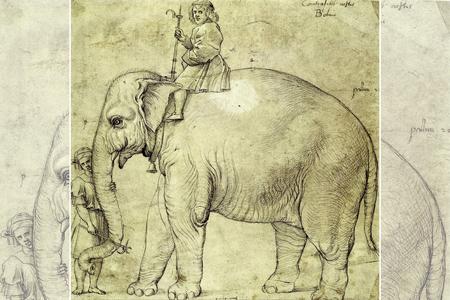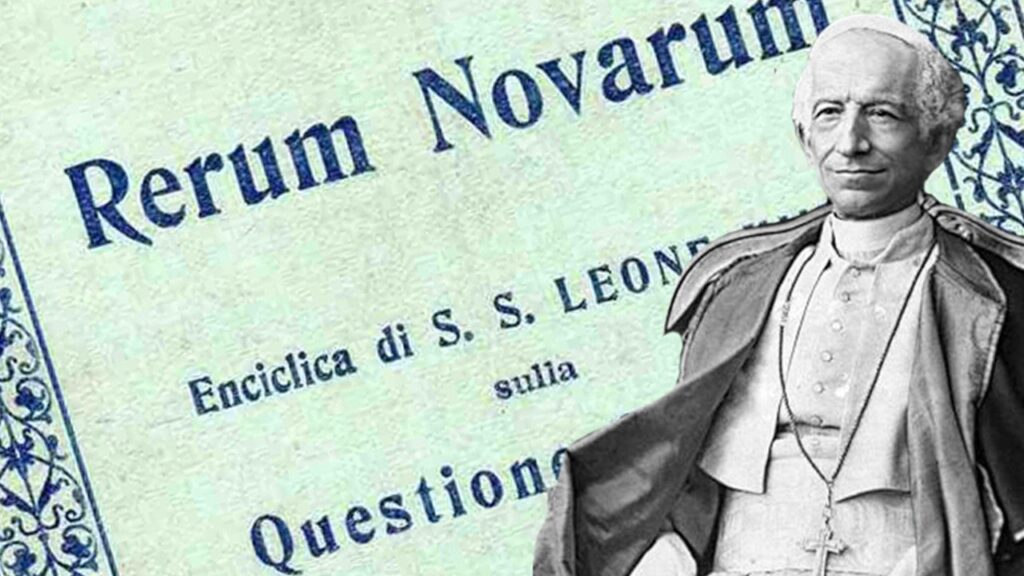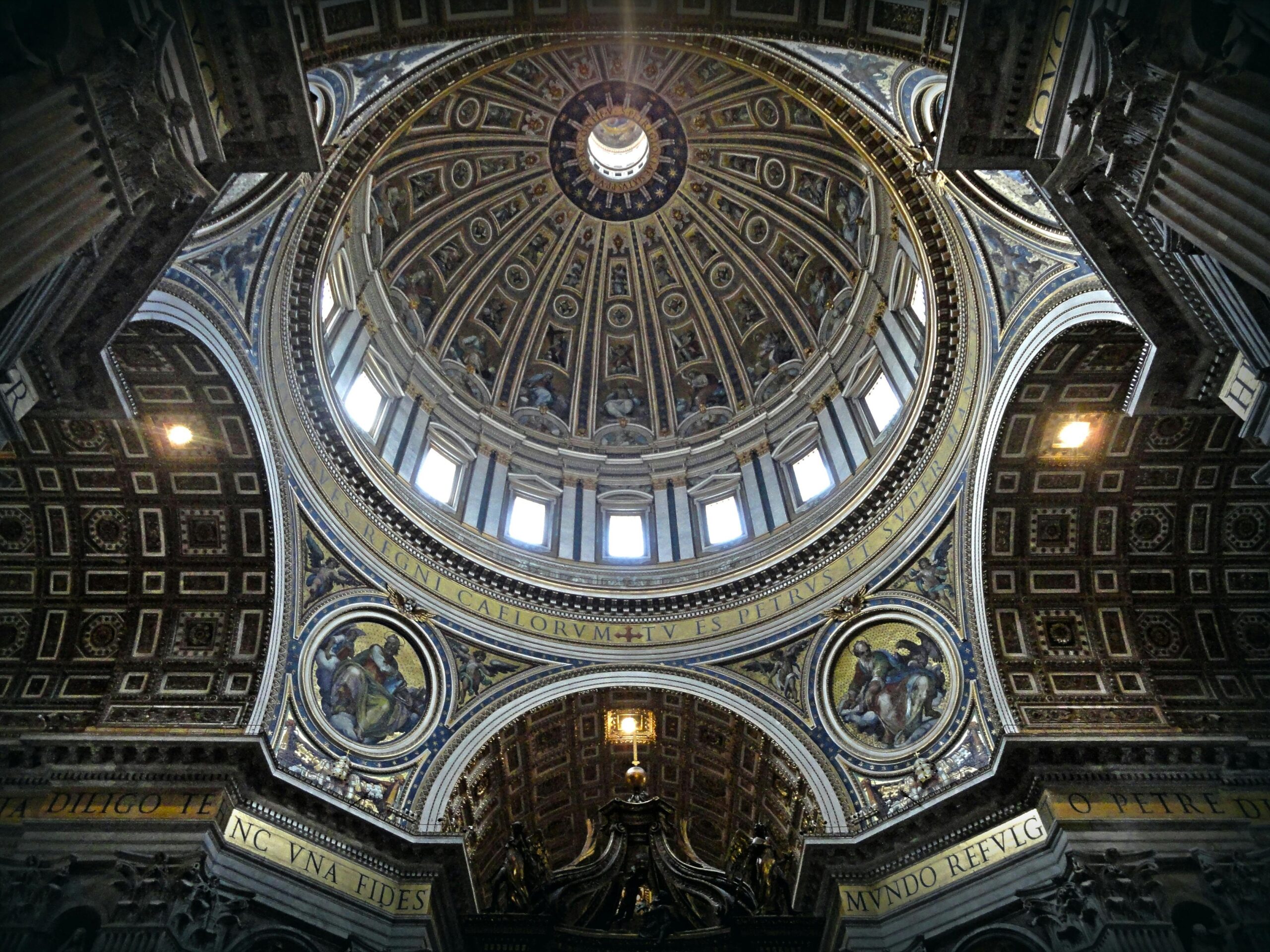Introductie
Deze week is de nieuwe Paus, Leo XIV, benoemt. Zelf heb ik als (mix van) evangelisch / protestants / gereformeerd christen weinig te maken met de paus. Toch is het een fascinerend proces dat zeer tot de verbeelding spreekt en dat mij ergens ook wel doet denken dat rituelen wel een zekere schoonheid en zelfs noodzaak hebben en dat we daar zeker als evangelische/protestantse christenen nog wel wat van kunnen leren.
Na de laatste paus was er echter veel spanning over welke richting de kerk op zou gaan met betrekking tot vele onderwerpen die hoog op de agenda staan bij velen. Ik zal niet ingaan op al deze kwesties gezien dit niet het doel is van deze site en ook omdat het zeker nog niet duidelijk is wat de invloed van deze paus op de kerk en de wereld zal zijn.
Wel is de keuze van de naam opvallend. Een paus kiest een naam om zich in een zekere traditie te plaatsen. Dus een naam als Leo XIV betekent dat hij zich in een lange traditie van eerdere Leo’s plaatst. Dus heb ik de afgelopen dagen eens gekeken wat de vorige Leo’s, en dan vooral Leo XIII over dieren gezegd hebben.
Paus Leo’s en dieren1

In het verleden zijn dieren vaak gebruikt als symbolen van de macht en autoriteit van de paus. Opvallend is dat meerdere pausen Leo bekend staan om hun relatie met dieren. Paus Leo X (1531-1521) had een olifant, die hij had gekregen van de koning van Portugal. Het dier werd beroemd en is te zien op allerlei kunstwerken uit die periode.
Ook Paus Leo XIII (1878-1903) hield er een hele dierentuin op na in de tuinen van de Vaticaan, waar dieren als struisvogels, herten, geiten en Afrikaanse gazelles vrij rond liepen.
Paus Leo XIII en Rerum Novarum2
Over Paus Leo XIII gesproken, in zijn belangrijke encycliek3 Rerum Novarum4 , waarin hij de sociale doctrine van de kerk uiteenzet met betrekking tot de situatie van de arbeidersklasse, het op dat moment opkomende socialisme/communisme, en de ongelijkheid, komen ook de dieren tweemaal voorbij.

In punt 6 schrijft hij:
What is of far greater moment, however, is the fact that the remedy they propose is manifestly against justice. For, every man has by nature the right to possess property as his own. This is one of the chief points of distinction between man and the animal creation, for the brute has no power of self direction, but is governed by two main instincts, which keep his powers on the alert, impel him to develop them in a fitting manner, and stimulate and determine him to action without any power of choice. One of these instincts is self preservation, the other the propagation of the species. Both can attain their purpose by means of things which lie within range; beyond their verge the brute creation cannot go, for they are moved to action by their senses only, and in the special direction which these suggest. But with man it is wholly different. He possesses, on the one hand, the full perfection of the animal being, and hence enjoys at least as much as the rest of the animal kind, the fruition of things material. But animal nature, however perfect, is far from representing the human being in its completeness, and is in truth but humanity’s humble handmaid, made to serve and to obey. It is the mind, or reason, which is the predominant element in us who are human creatures; it is this which renders a human being human, and distinguishes him essentially from the brute. And on this very account – that man alone among the animal creation is endowed with reason – it must be within his right to possess things not merely for temporary and momentary use, as other living things do, but to have and to hold them in stable and permanent possession; he must have not only things that perish in the use, but those also which, though they have been reduced into use, continue for further use in after time.
En later zegt hij:
Life on earth, however good and desirable in itself, is not the final purpose for which man is created; it is only the way and the means to that attainment of truth and that love of goodness in which the full life of the soul consists. It is the soul which is made after the image and likeness of God; it is in the soul that the sovereignty resides in virtue whereof man is commanded to rule the creatures below him and to use all the earth and the ocean for his profit and advantage. “Fill the earth and subdue it; and rule over the fishes of the sea, and the fowls of the air, and all living creatures that move upon the earth.”
Beide citaten zijn niet bepaald positief over onze medeschepselen. In het eerste citaat een ietwat vreemde vergelijking dat alleen mensen het recht op land bezitten zouden hebben. Dit is aan de ene kant logisch. Natuurlijk is dit bij dieren anders. Tegelijkertijd gaat juist dit grond bezitten door mensen maar al te vaak ten koste van de dieren die hier al leefden en kunnen er vragen gesteld worden of en tot in hoeverre we dit zomaar kunnen doen.
Daarnaast bezitten dieren het land niet zoals mensen dit doen, maar zijn veel dieren wel degelijk territoriaal zijn en zich dus wel degelijk een stuk land toe-eigenen op hun eigen manier.
In het tweede citaat zien we de problematische uitleg van de heerschappij in Genesis 1, waarbij de mens, volgens Leo XIII, over de schepselen moet heersen voor eigen profijt en voordeel. Als we even verder lezen in Genesis, zien we echter:
En God zei: Laten Wij mensen maken naar Ons beeld, naar Onze gelijkenis; en laten zij heersen over de vissen van de zee, over de vogels in de lucht, over het vee, over heel de aarde en over al de kruipende dieren die over de aarde kruipen! En God schiep de mens naar Zijn beeld; naar het beeld van God schiep Hij hem; mannelijk en vrouwelijk schiep Hij hen. En God zegende hen en God zei tegen hen: Wees vruchtbaar, word talrijk, vervul de aarde en onderwerp haar, en heers over de vissen van de zee, over de vogels in de lucht en over al de dieren die over de aarde kruipen! En God zei: Zie Ik geef u al het zaaddragende gewas dat op heel de aarde is, en alle bomen waaraan zaaddragende boomvruchten zijn; dat zal u tot voedsel dienen. Maar aan al de dieren van de aarde, aan alle vogels in de lucht en aan al wat over de aarde kruipt, waarin leven is, heb Ik al het groene gewas tot voedsel gegeven. En het was zo.5
In het verleden heb ik al eens een artikel over de heerschappij van Genesis 1 gepubliceerd (zie hier), dus ik zal er hier niet uitgebreid op ingaan, maar het idee van deze Bijbeltekst gaat mijns inziens eerder over hoe we de aarde met onze medeschepselen moeten delen en in die zin is het heersen eerder dienen dan dat het een gebruik voor eigen profijt en voordeel moet zijn.
Paus Franciscus over dieren
De laatste pausen hadden gelukkig al een ander beeld bij de dieren.
Johannes Paulus II zei dat:
“the animals possess a soul and men must love and feel solidarity with our smaller brethren.” He went on to say that all animals are “fruit of the creative action of the Holy Spirit and merit respect” and that they are “as near to God as men are.”6
En Benedictus XVI zei in een interview over dierenrechten:
“That is a very serious question. At any rate, we can see that they are given into our care, that we cannot just do whatever we want with them. Animals, too, are God’s creatures . . . . Certainly, a sort of industrial use of creatures, so that geese are fed in such a way as to produce as large a liver as possible, or hens live so packed together that they become just caricatures of birds, this degrading of living creatures to a commodity seems to me in fact to contradict the relationship of mutuality that comes across in the Bible.”7
En Paus Franciscus heeft in zijn encycliek Laudato Si8 en exortatie Laudate Deum9 aandacht besteed aan onze omgang met onze medeschepselen. In Laudato Si zegt hij:
“It is not enough, however, to think of different species merely as potential ‘resources’ to be exploited, while overlooking the fact that they have value in themselves.”
En:
“We must forcefully reject the notion that our being created in God’s image and given dominion over the earth justifies absolute domination over other creatures.”
In Laudate Deum, zegt hij zelfs dat onze medeschepselen nu onze slachtoffers geworden zijn:
“Ocean waters have a thermal inertia and centuries are needed to normalize their temperature and salinity, which affects the survival of many species. This is one of the many signs that the other creatures of this world have stopped being our companions along the way and have become instead our victims.”10
Gelukkig is de visie van de pausen sinds Leo XIII dus ver opgeschoven met betrekking tot de dieren.
Conclusie
Tegenwoordig kijken we gelukkig anders aan tegen het soort dierenhouden van de voormalige Leo’s, en het zou vrijwel ondenkbaar zijn dat de huidige paus zoiets zou doen. Toch hoop ik dat hij wel met bewondering stil zal staan bij de wonderen van de schepping.
Daarnaast hoop ik dat hij de visie van de vorige pausen verder uit zal werken in plaats van de visie van de vorige Leo, en dat er tijdens zijn pausschap verdere stappen gezet zullen worden richting de woorden uit de Katholieke Catechismus, dat we ze niet langer onnodig laten lijden en sterven:
“Animals are God’s creatures. He surrounds them with his providential care. By their mere existence they bless him and give him glory. Thus men owe them kindness. We should recall the gentleness with which saints like St. Francis of Assisi or St. Philip Neri treated animals. . . . It is contrary to human dignity to cause animals to suffer or die needlessly.”11
Voetnoten
- Lees meer: Popes and Pets: The Animals of the Vatican | by Lyceum | Medium ↩︎
- Hier beschikbaar: Rerum Novarum (May 15, 1891) | LEO XIII ↩︎
- Een encycliek is een pauselijk document dat een leerstuk uiteenzet ↩︎
- Latijns voor ‘Over de nieuwe dingen’ ↩︎
- Genesis 1:26-30 ↩︎
- Pope Benedict XVI Continues Tradition of Papal Concern for Animals | PETA ↩︎
- Pope Benedict XVI Continues Tradition of Papal Concern for Animals | PETA ↩︎
- Laudato si’ (24 May 2015) | Francis ↩︎
- “Laudate Deum”: Apostolic Exhortation to all people of good will on the climate crisis (4 October 2023) | Francis ↩︎
- Pope Francis’ new teaching on animal rights does not go far enough | America Magazine ↩︎
- Cathecism of the Catholic Church CCC 2415-2418 – Catechism of the Catholic Church ↩︎
- “Beesten kunnen nooit zo wreed zijn als de mens”
- Wanneer het dier terugkeert: Ossenkop, de afwezige referent en de prijs van vlees
- Van Sint Franciscus tot Goodall: een erfenis van respect
- De Vegetariër – Wat kunnen we leren van fictie?
- “Tender Is the Flesh” en het Heilig Avondmaal: Een overdenking

